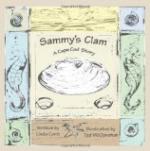“They ain’t no sense in it, Peter,” says he. “Education’s all right in its place, but ’tain’t no good out of it. Why, one of my last voyages in the schooner Samuel Emory, I had a educated cook, feller that had graduated from one of them correspondence schools. He had his diploma framed and hung up on the wall of the galley along with tintypes of two or three of his wives, and pictures cut out of the Police News, and the like of that. And cook! Why, say! one of the fo’mast hands ate half a dozen of that cook’s saleratus biscuit and fell overboard. If he hadn’t been tangled up in his cod line, so we could haul him up by that, he’d have been down yet. He’d never have riz of his own accord, not with them biscuits in him. And as for his pie! the mate ate one of them bakeshop paper plates one time, thinking ‘twas under crust; and he kept sayin’ how unusual tender ’twas, at that. Now, what good was education to that cook? Why—”
“Cut it out!” says Peter T., disgusted. “Who’s talking about cooks? These fellers ain’t cooks—they’re—”
“I know. They’re waiters. Now, there ’tis again. When I give an order and there’s any back talk, I want to understand it. You take a passel of college fellers, like you want to hire for waiters. S’pose I tell one of ’em to do something, and he answers back in Greek or Hindoo, or such. I can’t tell what he says. I sha’n’t know whether to bang him over the head or give him a cigar. What’s the matter with the waiters we had last year? They talked Irish, of course, but I understood the most of that, and when I didn’t ’twas safe to roll up my sleeves and begin arguing. But—”
“Oh, ring off!” says Peter. “Twenty-three!”
And so they had it, back and forth. I didn’t say nothing. I knew how ’twould end. If Peter T. Brown thought ’twas good judgment to hire a mess of college boys for waiters, fellers who could order up the squab in pigeon-English and the ham in hog-Latin, I didn’t care, so long as the orders and boarders got filled and the payroll didn’t have growing pains. I had considerable faith in Brown’s ideas, and he was as set on this one as a Brahma hen on a plaster nest-egg.
“It’ll give tone to the shebang,” says he, referring to the hotel; “and we want to keep the Old Home House as high-toned as a ten-story organ factory. And as for education, that’s a matter of taste. Me, I’d just as soon have a waiter that bashfully admitted ‘Wee, my dam,’ as I would one that pushed ‘Shur-r-e, Moike!’ edge-ways out of one corner of his mouth and served the lettuce on top of the lobster, from principle, to keep the green above the red. When it comes to tone and tin, Cap’n, you trust your Uncle Pete; he hasn’t been sniffling around the tainted-money bunch all these days with a cold in his head.”
So it went his way finally, as I knew it would, and when the Old Home opened up on June first, the college waiters was on hand. And they was as nice a lot of boys as ever handled plates and wiped dishes for their board and four dollars a week. They was poor, of course, and working their passage through what they called the “varsity,” but they attended to business and wa’n’t a mite set up by their learning.




